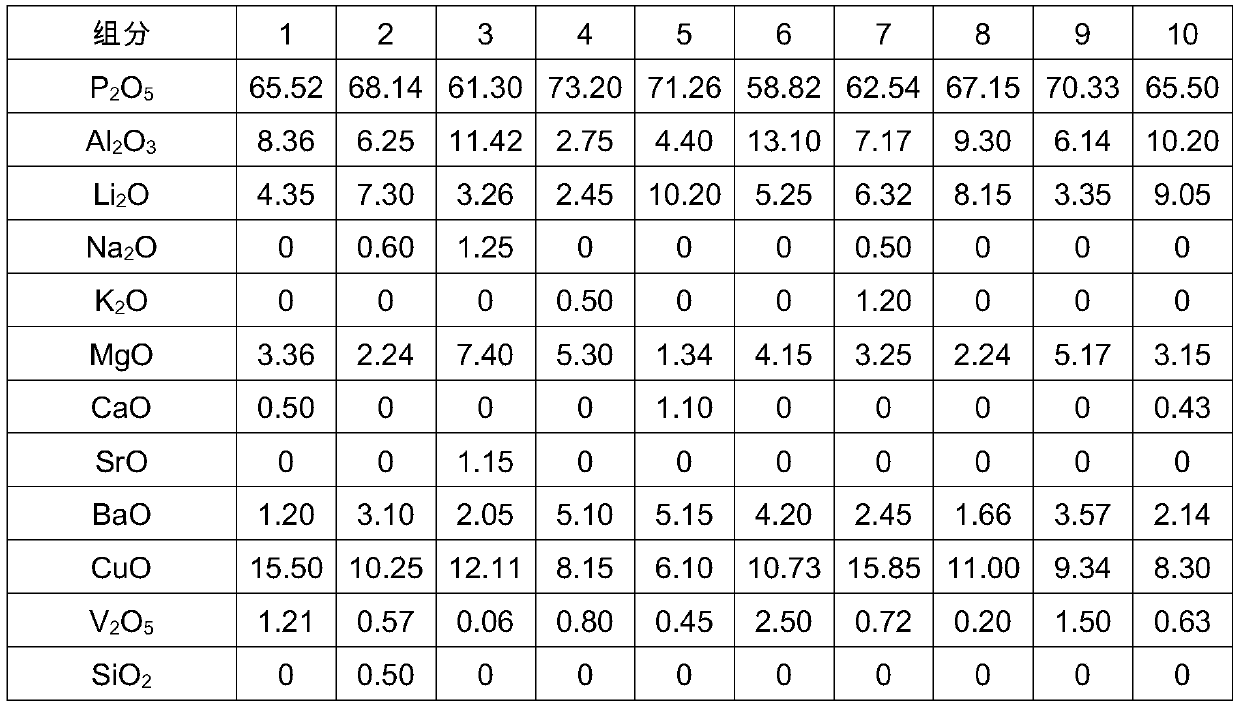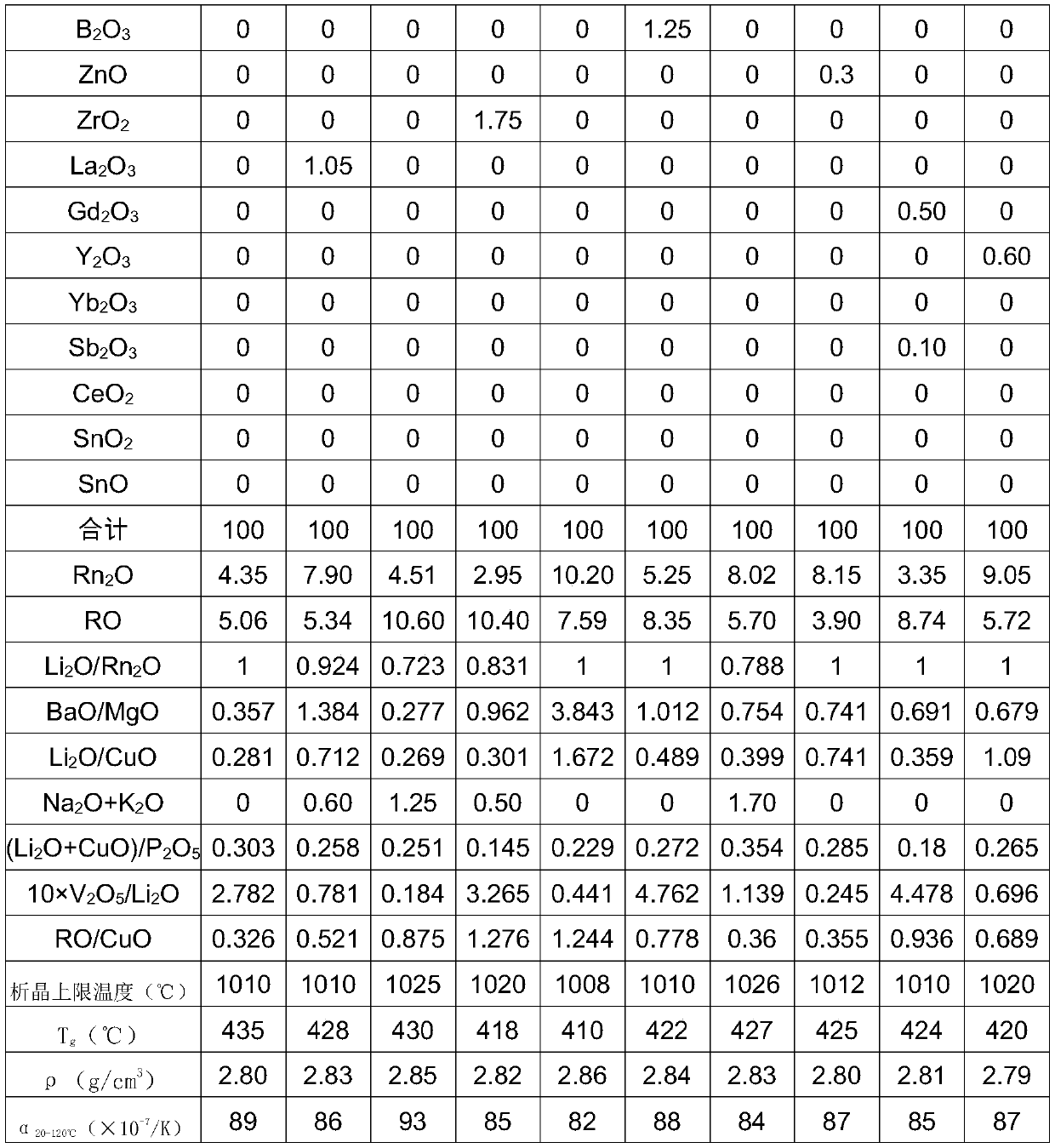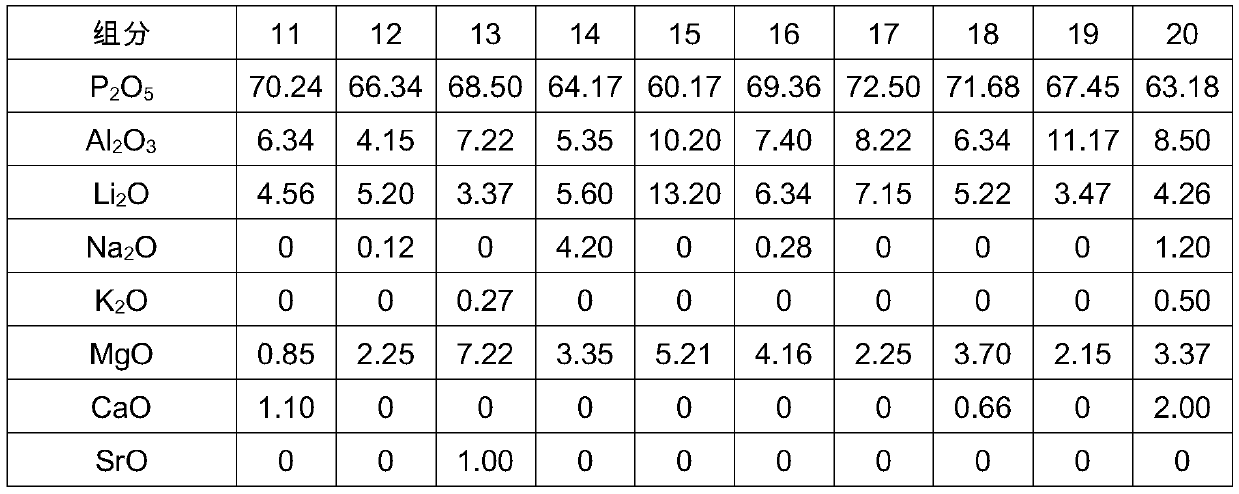Glass, glass product and manufacturing method of glass product
A glass product and glass technology, applied in the field of near-infrared light-absorbing glass and glass products, can solve problems such as difficulty in obtaining light absorption performance, easy changes in valence state, and reduced glass stability
- Summary
- Abstract
- Description
- Claims
- Application Information
AI Technical Summary
Problems solved by technology
Method used
Image
Examples
Embodiment
[0127]
[0128] In order to further clearly illustrate and illustrate the technical solution of the present invention, the following non-limiting examples are provided.
[0129] In this example, glass having the compositions shown in Tables 1 to 3 was obtained by using the above-mentioned glass manufacturing method. In addition, the properties of each glass were measured by the test method described in the present invention, and the measurement results are shown in Tables 1 to 3.
[0130] Table 1
[0131]
[0132]
[0133] Table 2
[0134]
[0135]
[0136] table 3
[0137]
[0138]
[0139] The glass made in the examples described in the above Tables 1 to 3 was processed into a glass sheet with a thickness of 0.11 mm, and the spectral transmittance of the glass of each example was measured according to the test method described above, and the results are shown in Table 4 ~ Table 6.
[0140] Table 4
[0141] Example 1 2 3 4 5 6 7 8 9 ...
PUM
 Login to View More
Login to View More Abstract
Description
Claims
Application Information
 Login to View More
Login to View More - R&D
- Intellectual Property
- Life Sciences
- Materials
- Tech Scout
- Unparalleled Data Quality
- Higher Quality Content
- 60% Fewer Hallucinations
Browse by: Latest US Patents, China's latest patents, Technical Efficacy Thesaurus, Application Domain, Technology Topic, Popular Technical Reports.
© 2025 PatSnap. All rights reserved.Legal|Privacy policy|Modern Slavery Act Transparency Statement|Sitemap|About US| Contact US: help@patsnap.com



